Knox County Board of Education 2024 voter guide: Meet the candidates
Three Knox County Board of Education seats are up for election Aug. 1, representing Districts 2, 3 and 5.
This is only the second election since Tennessee law changed to force partisan races for school boards. Voters narrowed down their choices in the primary election in March.
One more seat - District 8 - was originally on the ballot. Knox County commissioners decided they would elevate the winner of the District 8 Republican primary to the school board the day after the election because the seat was vacant following the death of Mike McMillan in January. Travis Wright won the face-off and was sworn in.
Here's what the candidates told us in person and in written responses to our questions.
Knox County Board of Education
District 2
Jennifer Owen, incumbent, 57, independent, former Knox County schools teacher
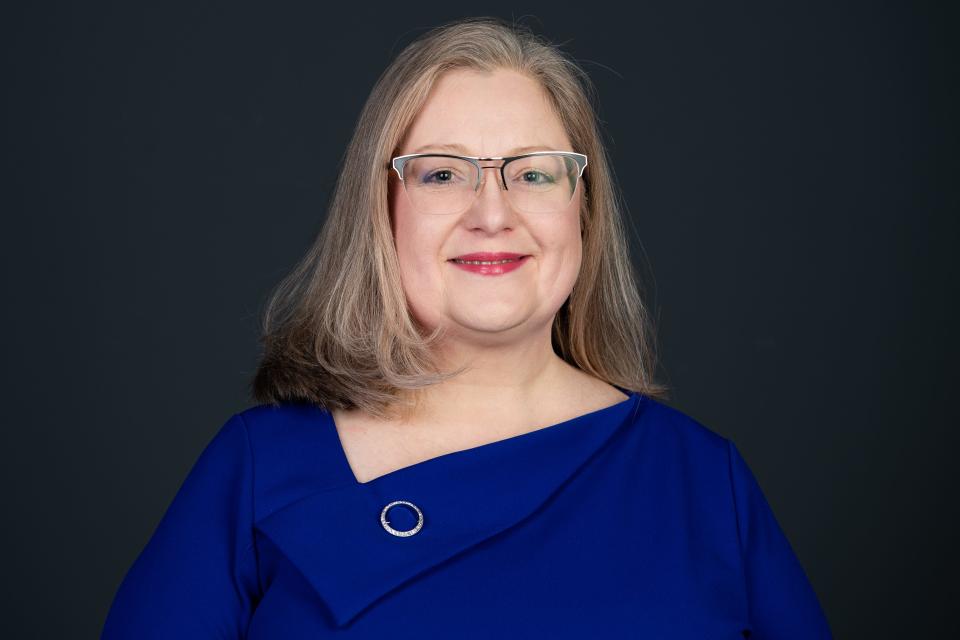
Do you agree with the four priorities (success for every student, great educators in every school, career empowerment and preparation, and excellence in foundation skills) set by Superintendent Jon Rysewyk? If not, how would you change them? (from in-person interview)
Owen said the priorities are very broad and she would like to see some additional prioritization of humanities and arts. Students have lost of critical and creative thinking, she said, because they're using a lot more scripted thinking instead of being encouraged to find creative ways to problem-solve.
This is a partisan race. How would you ensure that the school board remains focused on local issues? (from in-person interview)
The board has to be able to see that even when board members disagree, they are not enemies, Owen said. Since the introduction of partisan school board races, that's become more difficult.
"We used to be better than that before we had partisan elections," she said. "We knew where people stood on different things, but when it came to education issues, all of that was put aside and we looked at what was best for students."
Partisan politics is bringing to the surface issues that have nothing to do with our schools and board members have to find a way to keep them out, she said.
What are the district's biggest strengths? (from candidate questionnaire)
Great teachers and school staff.
Building business partnerships.
Asking for feedback from students, staff, and the community.
What are the district's three biggest weaknesses right now? (from candidate questionnaire)
Lack of transparency.
Poor treatment of staff by other staff, supervisors, and others and failing to use the feedback Knox County Schools collects.
Lack of support for student behavior and mental health issues.
What long-term plans do you have in mind to address staffing shortages? (from candidate questionnaire)
The current staffing shortage has been caused by a wide range of issues both statewide and locally. Many issues must be addressed to bring long-term solutions. The following is a partial list, in no particular order:
Salaries across the state have not kept up with inflation or with salaries earned in occupations with similar requirements. We cannot keep staff if they cannot afford to work for Knox County Schools.
Evaluations are often used punitively, rather than for growth and the nonrenewal system pushes young teachers out before they have and opportunity to improve. The district must require administrators to help teachers grow, rather than pushing them out with no options.
Knox County Schools has a culture of treating staff problems dismissively. The district must embrace learning and growing as a fundamental function of the school workplace.
Too often, our school board members and administrators use politicized language to describe perceived deficiencies in student learning that do not exist. Faculty and staff know that these statements are untrue and become discouraged that their district leaders are not appropriately supporting staff and students by correcting these false statements in public. To attract and keep great staff, we have to support them internally as well as in our statements to the public.
What can the school board do to close the achievement gap among Knox County Schools? (from candidate questionnaire)
First, we have to look at what we are using to determine what gaps exist. Gaps that are reported based on high-stakes tests are inaccurate, at best. To take a one-time snapshot of a student on one day and one test and use that to claim that a particular gap exists fails to serve our community.
The district needs to work more closely with communities to help children from birth to Kindergarten, so that they are able to begin school ready to learn. Expanding pre-Kindergarten opportunities would make a significant difference for children.
Most learning and brain development occurs very early. Students who need interventions need to have these as early as possible. Waiting until 3rd or 4th grade – or even later – ignores everything we know about learning. Waiting until a student is at the end of elementary school is far to late to ramp up tutoring and other interventions. The district absolutely must invest in moving interventions to earlier grades if we expect to close gaps.
Pat Polis, 77, independent, church consultant
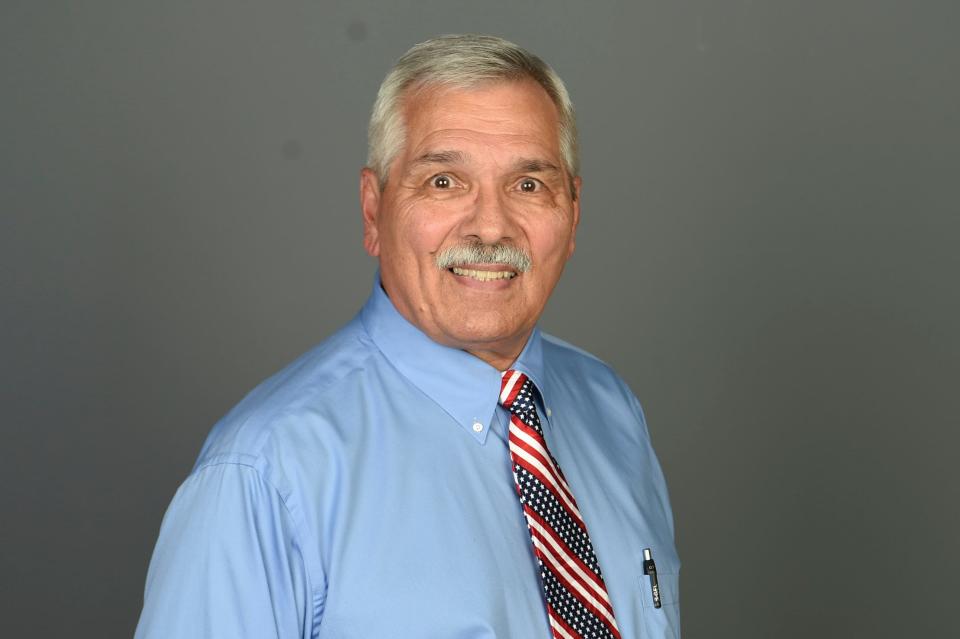
Why are you running for school board? (from in-person interview)
Polis has been in Knoxville since 1993 and has served on the boards of multiple community organizations including Vietnam Veterans Chapter 1078 and East Tennessee Military Affairs Council.
He believes public service is an investment in the community that you live in.
The district is appointing review committees to look at library books that some community members have raised concerns about. What are your thoughts on how to moderate books, if to do that at all? (from in-person interview)
Polis said the board has a responsibility to oversee what they allow children to be exposed to, without isolating them too much. The focus should be on teaching students the fundamentals in schools.
"I think we need to be careful," he said. "How is that helping them to grow? How is that helping them to learn? We still are struggling with teaching students how to read, how to write and how to add and subtract."
He doesn't support books that are explicit to be available in schools.
What are the district's biggest strengths? (from candidate questionnaire)
Our schools benefit from strong ties to the community and community organizations. Our schools provide diverse programs in an effort to meet every student’s interest and needs through extracurricular activities like sports to clubs to performing arts. Our schools offer a wide range of Advanced Placement courses and dual enrollment options preparing students for post-secondary education. Our schools are leaders in classroom technology, providing teachers and students access to the latest tools and resources, enhancing their learning experience.
What are the district's three biggest weaknesses right now? (from candidate questionnaire)
Our schools face many challenges. First, attracting and retaining qualified teachers. Competitive salaries in neighboring districts and states exacerbate this challenge. Recently, we have closed the gap but there is still work to do.
Second, the breakdown of the family unit makes teachers' roles more complex as they must address academic as well as behavioral issues with their students.
Third, many children start kindergarten without basic skills, placing them at an initial disadvantage and increasing the demands on teachers to help them catch up. Recognizing and prioritizing these weaknesses is essential for our schools to continue providing high-quality education.
What long-term plans do you have in mind to address staffing shortage in the district? (from candidate questionnaire)
This requires a multifaceted approach. First, continue to support our teachers with competitive salaries and continuing education opportunities.
Second, strengthen the partnership with University of Tennessee's School of Education to create a teacher pipeline into our school system. Identify top students early on and develop a program to introduce them to the benefits of living in Knox County and working in Knox County Schools.
Third, increase our efforts in partnering with local universities and alternate certification programs to create pathways for changing careers into shortages in critical areas.
Finally, develop a bonus system tied to student growth that incentivizes and awards teacher efforts.
What can the school board do to close the achievement gap among different Knox County Schools? (from candidate questionnaire)
Since fiscal year 2016, our Knox County Schools budget has increased from $438 million to $684 million yet we continue to struggle in student achievement in many of our schools.
Our lowest performing schools have unacceptable proficiency rates in math and reading. If we agree that we cannot accept leaving children behind, then maybe it’s time to agree to be more open to different educational options. Is not empowering parents with educational choices along with the financial resources to support those choices in the best interest of our children? In spite of the increasing budget, our current educational pathway does not seem to have the outcome we are hoping for.
Maybe it’s time to be bold and take the lead in evaluating new pathways, again, in the best interest of our children. Today’s children are tomorrow’s employees.
Anne Templeton, 45, Democrat, director of maker initiatives at The Maker City
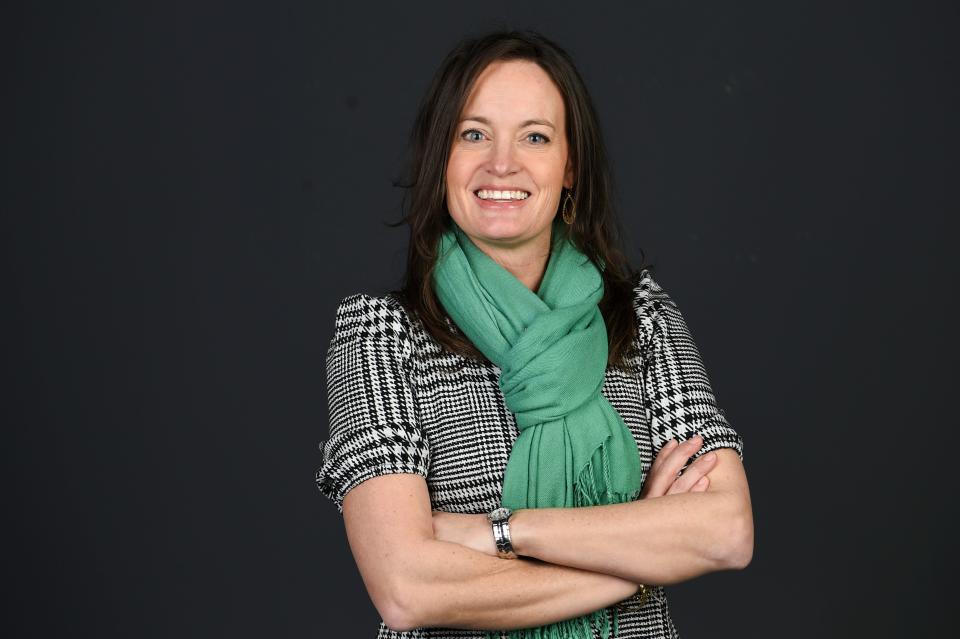
The district is appointing review committees to look at books that community members have raised concerns with. What are your thoughts on how to moderate books if to do that at all? (from in-person interview)
"First and foremost, I trust our librarians," Templeton said.
Librarians are committed to educating Knox County's children, she said, utilizing the degrees that they have worked hard for. She said she trusts them to know what's best for children. She's supportive of the current process, she said, and is open to making adjustments.
What do you think of disparities in the district's public schools? Is there a way to distribute resources more equitably? (from in-person interview)
Disparities exist between Knox County's public schools, Templeton said, and it's leaving a lot of children without tools they need and leaving teachers without resources to teach those children.
The talk about equity in education should focus on the starting blocks, she said, and making sure all kids are educated from the same place from the beginning. Financially, the district should support schools differently to get them to the same place and that could mean looking at better pre-K options and looking at data to know what the best methods are.
It's important that regardless of how much money goes into a school, she said, that children feel safe and that they are in a learning environment that encourages excellent education.
What are the district's biggest strengths? (from candidate questionnaire)
Knox County Schools have several strengths that contribute to a student body ready to take on their next steps prepared.
First, there is a continuing effort to create partnerships with higher education institutions and trade schools. These provide students a variety of pathways to pursue their individual goals. These relationships are being strengthened with the implementation of the 865 Academies.
In addition, Knox County can boast that over 60% of teachers hold advanced degrees, which demonstrates a commitment to providing high-quality education to students. These teachers are dedicated to their mission.
Finally, there has been a marked improvement in parent communication. Utilizing multiple channels, including the ParentSquare app, texts, calls and emails, ensures parents are well-informed and have the opportunity to engage in their child’s education.
What are the district's three biggest weaknesses right now? (from candidate questionnaire)
While Knox County Schools have many strengths, several challenges need to be addressed including teacher retention, standardized testing and aging facilities.
Attracting and retaining high-quality teachers is a difficult hurdle to cross. It is compounded by increasing workloads, decreased teacher support and unnecessary testing. As stated above, our teachers are highly skilled and we need to allow them the flexibility to be creative in their classrooms in order to meet the needs of their students.
The emphasis on testing creates a high-pressure environment for students and teachers. They are testing an average of 10 weeks out of the school year, which is almost a third of the classroom time. Testing has become excessive and needs to be reevaluated in relation to class instruction time.
Finally, many schools in District 2 need building assessments for Americans with Disability Act compliance and possible capital improvements for aging buildings. All students need to have access to modern, safe and effective learning environments.
Addressing these weaknesses requires ongoing effort, strategic planning and community support.
What long-term plans do you have in mind to address staffing shortage in the district? (from candidate questionnaire)
Staffing shortages are due to the lack of applicants and the increased teacher attrition. Long-term plans should focus on creating a pipeline from higher education institutions to classrooms and developing a supportive environment for educators. These professionals must be valued and trusted to do their work well. Knox County should also be creative in problem solving, considering options like flexible schedules to ensure manageable workloads.
What can the school board do to close the achievement gap among different Knox County Schools? (from candidate questionnaire)
To close the achievement gap, we need to better support children based on their individual starting points rather than expecting them all to begin at the same level.
Making pre-kindergarten a viable option for all parents can help mitigate socio-economic disparities early on. Additionally, we must address implicit bias in testing, recognizing that not all children share the same life experiences and therefore may not fully understand scenarios presented in test questions. Finally, creating safe, inclusive environments with high expectations for academic success is essential to help all students thrive.
District 3
Patricia Fontenot-Ridley, 56, Democrat, retired Knox County Schools teacher
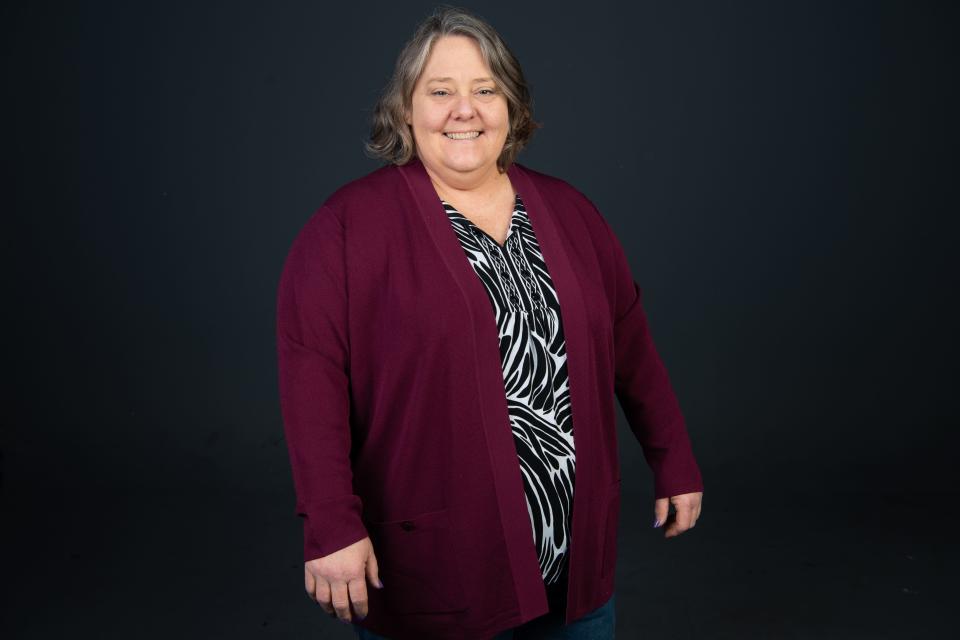
What do you think of disparities in the district's public schools? Is there a way to distribute resources more equitably? (from in-person interview)
Fontenot-Ridley said she has seen disparities first-hand, especially in her experience as a teacher. When she taught at Belle Morris Elementary School, the community there was trying to fundraise for a playground but it was a challenge to do so.
"The goal post kept moving."
To fix the disparities, the school board has to pay attention to what individual schools need, she said. It's not a question of equality and everyone getting the same amount, it's equity that brings everybody to the same level, whether it's funding or support or volunteers.
Why are you running for school board? (from in-person interview)
Fontenot-Ridley said her heart is still in it, even after retiring as a teacher at Knox County Schools. She said she wants to continue to serve the community.
"I still really care about what happens."
What are the district's biggest strengths? (from candidate questionnaire)
I believe that Knox County Schools' biggest strengths include community and personnel. Our communities are strong, and each one is unique. Our families passionately stand behind our teachers and schools with trust and pride. Our communities entrust their children to us, and our teachers welcome all children into our schools with open arms. We have highly qualified teachers in every position, and most of them have advanced degrees in specialties such as reading, curriculum specialties such as math, science, and technology or administration. Our students are in the hands of world-class professionals who know how to teach all of the children in their care.
What are the district's three biggest weaknesses right now? (from candidate questionnaire)
While Knox County Schools are one of the strongest systems in the state, there are several places that could use some attention. Our teachers work harder than anyone I've ever seen, but they do not feel that their efforts are noticed. Most teachers whom I have known over the years often spend their personal time in the evenings to grade papers, tests and contact parents. Many attend conferences, often at their own expense, during the summer, with no compensation. I know that our administrators appreciate and believe in our teachers, but teachers and education support professionals rarely hear it. Everyone, no matter the type of work, likes to hear that they are appreciated.
Interruptions in teaching due to testing disrupt class instruction and schedules up to 10 weeks during the year. It is difficult to teach the state standards to be tested if you do not have the time to give instruction of those standards. One question we need to look at is if the data from all of the testing is being used effectively.
Distractions caused by questions about books and policies that already have processes to deal with them take up precious time. Attention could be paid elsewhere, such as building up programs that encourage students to consider teaching as a profession, and giving students the tools they need to navigate life after high school, whether it includes higher education or going straight into the workforce.
What long-term plans do you have in mind to address staffing shortage in the district? (from candidate questionnaire)
Our staffing shortages are as much a retention problem as a shortage. Most teachers who leave the teaching profession leave within their first five years in the classroom. We will not be able to attract and retain new teachers until they are given all of the support they need to be successful, including mentors who work with them throughout the first few years. Teacher preparation programs must be able to give all of their students a realistic experience in internships, including experiences in both urban and rural schools.
What can the school board do to close the achievement gap among different Knox County Schools? (from candidate questionnaire)
Until we understand the differences in all of the regions, we will not be able to address the achievement gap. Understanding that poverty is the root of the problem is a start.
We need to give true thought as to what each region and school needs to bridge the gap. Access to counseling, interventions, and realistic progressive discipline are key to the success of our most challenged students. Until students' basic needs are met, we will keep failing to close the achievement gap. A strong partnership between school staff and families is key to meeting these needs. Positive Behavior Interventions and Supports provides structure to allow our schools to recognize the majority of our students who are doing the right thing, while giving guidance and supports to students who need them. Our teachers truly want what is best for their students.
Angie Goethert, 57, Republican, former parent-teacher association president at Cedar Bluff schools
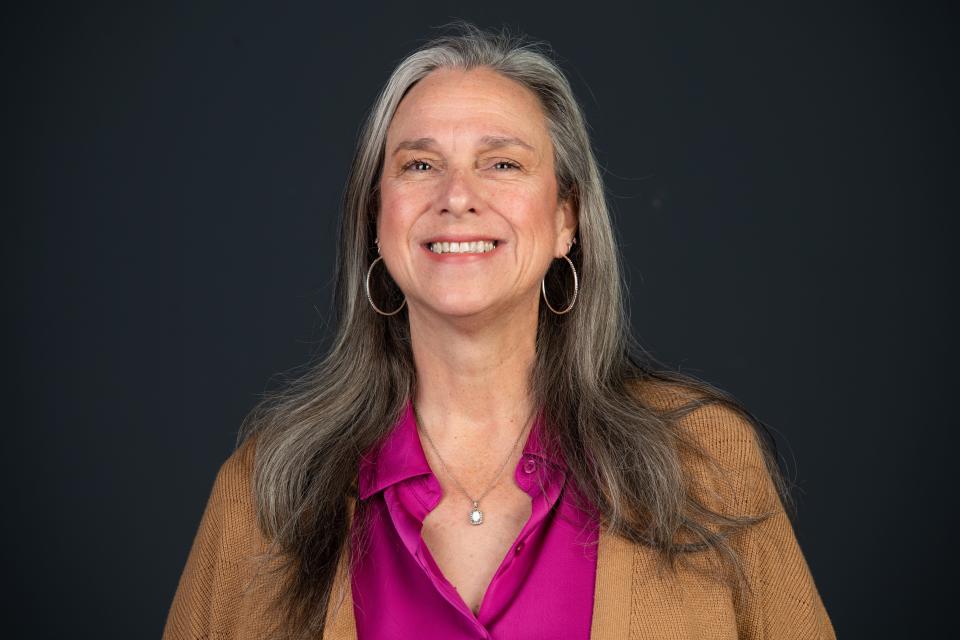
The district is appointing review committees to look at books that community members have raised concerns with. What are your thoughts on how to moderate books if to do that at all? (from in-person interview)
Goethert said she supports involving community and parents to review books, in accordance with state laws. She referenced a newly amended Tennessee law that prohibits, among other things, books with sexually explicit content from schools.
Everything children access in schools should be age-appropriate, she said.
What issues are you hearing about from voters? (from in-person interview)
The big thing she's heard from voters, Goethert said, is people wanting more opportunities for parental involvement.
"Parents want to be a part of the decision-making process," she said.
She said the focus needs to be on ensuring more parental engagement opportunities at the school level, asking parents to be a more active stakeholder in their children's education.
What are the district's biggest strengths? (from candidate questionnaire)
The people in Knox County Schools. From the students, parents, teachers and staff and the superintendent and his staff, we really have wonderful people here.
What are the district's three biggest weaknesses right now? (from candidate questionnaire)
Improving literacy, job readiness for graduates and ensuring that our special education students are receiving an equitable education that meets their individual education plan goals.
What long-term plans do you have in mind to address staffing shortage in the district? (from candidate questionnaire)
Increasing teacher pay to ensure the best and brightest want to be a part of Knox County Schools.
What can the school board do to close the achievement gap among different Knox County Schools? (from candidate questionnaire)
Relentlessly focus on high quality instruction, recruit and retain great teachers and make sure that parents are involved as much as possible.
District 5
Lauren Morgan, 37, Republican, volunteer
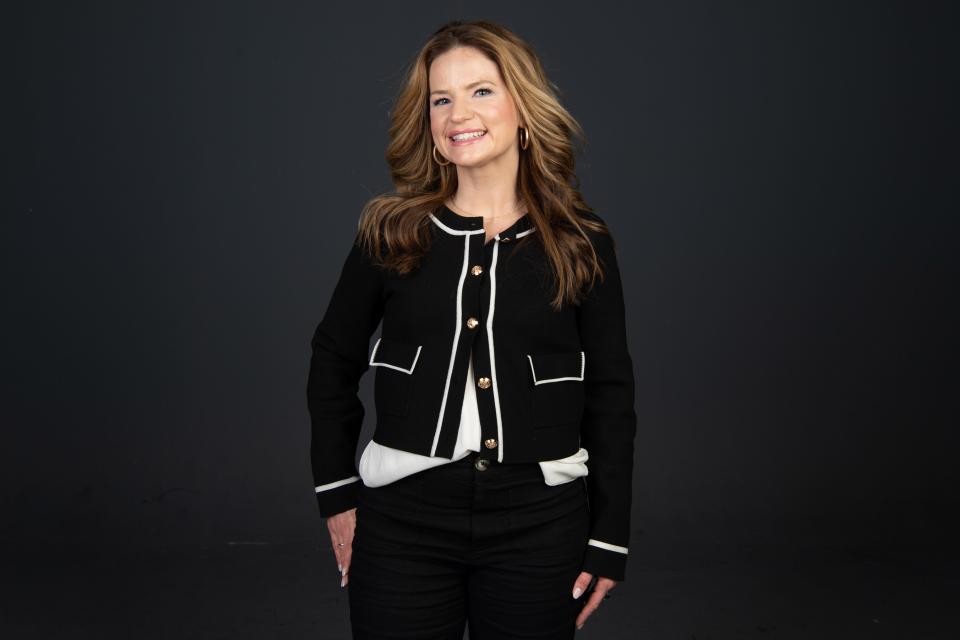
Did not respond to the questionnaire or requests for an interview.
Terrye Whitaker, 72, Democrat, substitute teacher
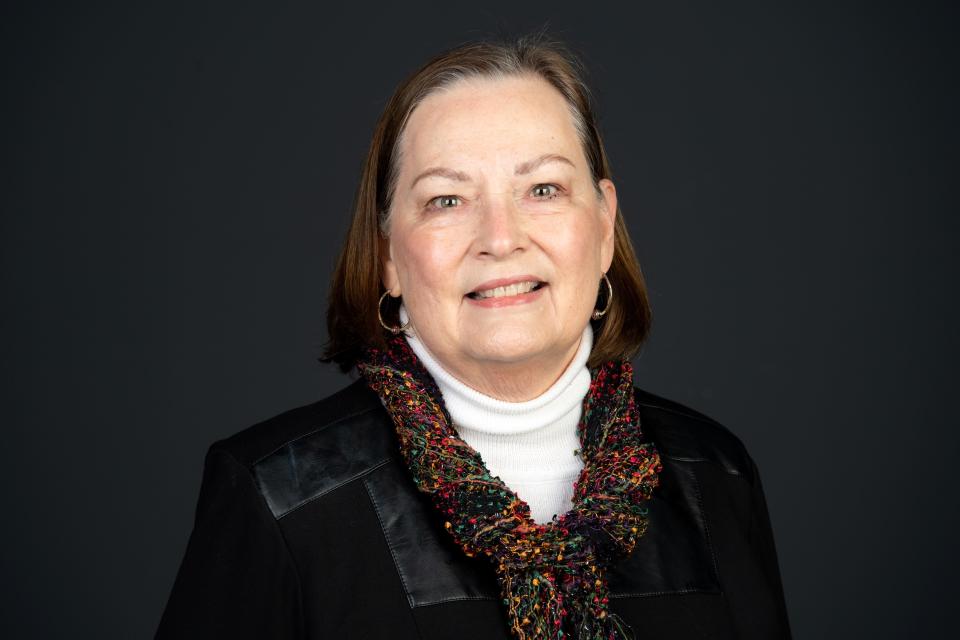
The district is appointing review committees to look at books that community members have raised concerns with. What are your thoughts on how to moderate books if to do that at all? (from in-person interview)
Whitaker said she has "very mixed feelings" on the issue. Her first thought is to not ban books, but not all books are acceptable for kids at each level, she said.
Different students learn differently and may have different needs. Before making decisions, the district should consider if parents are OK with the books in question and if the book has overall have redeeming qualities in teaching certain things, she said.
One parent's concerns shouldn't impact access for other students, she said.
What issues are you hearing about from voters? (from in-person interview)
Whitaker said she's not in favor of school vouchers.
"If parents want to move their kids to private schools, that's fine, I have no problem with that," she said. "But public dollars should stay in public schools."
What are the district's biggest strengths? (from candidate questionnaire)
Based upon discussions with residents/teachers in the district, as well as what I have seen at the school board meetings, I would say the biggest strengths include the dedication of the teachers and staff to the students they serve, and the commitment of the local parents in the district to help meet the financial needs of "extras."
What are the district's three biggest weaknesses right now? (from candidate questionnaire)
I think the biggest weaknesses in this district are overcrowding of classrooms, not enough support staff for the number of students in the schools and inadequate salary for support staff. The recent pay increases have helped somewhat with all levels of employment, but not enough. This makes it harder for the school system to hire the required number of staff and to retain them.
What long-term plans do you have in mind to address staffing shortage in the district? (from candidate questionnaire)
I think a long-term plan is needed to prevent salary stagnation and ensure Knox County keeps up with schools in surrounding areas. This will enable Knox County to attract and retain top teachers. The plan should provide adequate support staff to assure that teachers are spending their time doing what they are trained to do, rather than jobs that should be done by others. The plan would include consistent and regular communication between school administrators, teachers, the community, and the school board.
What can the school board do to close the achievement gap among different Knox County Schools? (from candidate questionnaire)
Presently, budgets are prepared to fit expected funding. The school board should request another budget from each of the schools, based upon prioritized needs, so that the board can identify shortfalls and deficiencies. These deficiencies should be communicated to county commissioners so that plans can be developed to address problem areas in the future.
This article originally appeared on Knoxville News Sentinel: Knox County Board of Education candidates: 2024 voter guide

